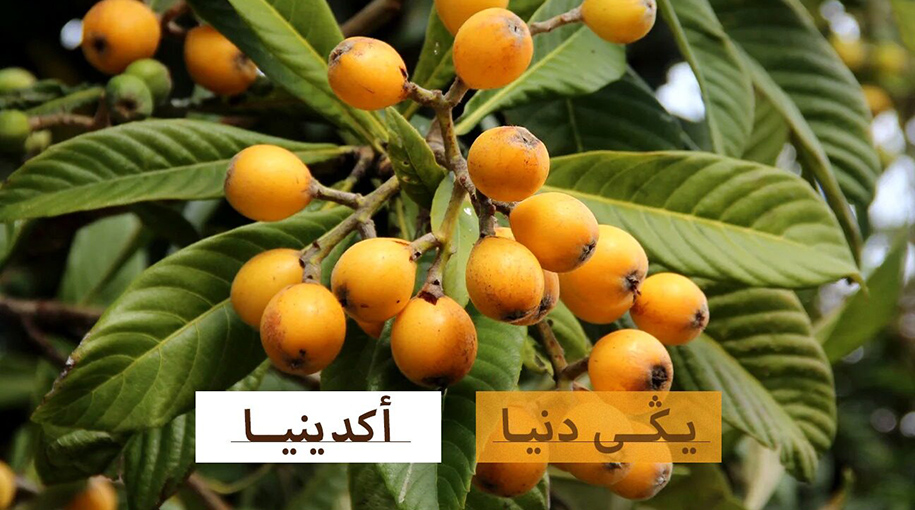By Ram Attaf, Translator at House of Content
In 1962, a Korean-American mother sent her second-generation Korean immigrant son to school with a lunchbox full of Kimchi, a traditional fermented South Korean condiment. When he and his classmates went to lunch, the guttural reaction of natives went something along the lines of “Ew! What’s that smell?! That’s definitely not food!”.
When the kid went back home, he begged his mother, crying, to never send him to school with Kimchi ever again, asking instead for ham and cheese sandwiches.
In 2022, one brand of South Korean Kimchi saw 270% revenue growth in the United States market compared to 2019, making the U.S. the 2nd biggest buyer of that brand of Kimchi.
Similar to how immigrants’ food slowly transitions from being, well, foreign to embraced, immigrants’ languages undergo that exact same process, a process that blurs the lines between what’s native and foreign, one that creates a new language form, or what’s known as an ‘ethnolect’.
The travel of language with people isn’t something new. In fact, it’s known to be a major driver of new words, or neologisms, and new forms of speech. Thus, we’ll start our story in the past, with a familiar fruit bearing a foreign name.
Familiar Fruit, Foreign Name
The loquat fruit, or ‘Akedenia’ as it’s known in Arabic, is a very popular fruit in the Near East. This juicy fruit, which derives its name from Ottoman Turkish, went on a linguistic journey that Beiruti photographer Fadi BouKaram recently brought to mainstream attention through his social media content. In Ottoman, it was named “Yeni dünya”, literally meaning ‘New World’, due to the belief that it was sourced from the Americas. However, the fruit finds its true origins in Malta, hence its other name, Maltese plum. Because of the centuries of Ottoman rule over the Near East, a lot of Ottoman terms seeped into the Arabic vernacular. In the Ottoman days, Turkish was written in the Arabic alphabet, to an Arabic reader. Thus, it became the ‘Akedenia’ we know and love.

Familiar Work, Foreign Language
In the 1960s, long after the fall of the Ottoman Empire, a significant wave of around 850,000 Turkish workers came to Germany to work in its coal mines and other factories. This came in the context of the booming economy in West Germany requiring a workforce that simply did not exist. 60 years later, some 3 million people of Turkish descent live in Germany, forming the nation’s largest minority group.
Fast forward to 2023, the children of these immigrants are creating a living, breathing linguistic wave of their own, known in German as “Kiezdeutsch”, with Kiez referring to urban neighborhoods in Berlin. Kiezdeutsch was previously referred to as ‘Kanak Sprach’; ‘Sprach’ meaning language, and the term ‘Kanak’ a pejorative used to refer to Turk and Arab immigrants in Germany.
The Absurdity of a Female Fork and a Male Spoon
Kiezdeutsch typically consists of syntactically altered German sentences, where the traditional rules of grammar are not followed. The linguistic cherry on top is the addition of Arabic or Turkish words, such as ‘Yalla’ or ‘Wallahi’. These additions are made all the more interesting due to their increasingly common use by German, not Arab, youth. This goes to show that this dialect is far from exclusive to children of immigrants, as countless native German youth employ authentically Arabic terms into their daily discourse.
Furthermore, the new discourse is characterized by the omission of articles and prepositions, along with a relaxed approach to the typical structure of a German sentence. For example, instead of the proper German ‘Ich gehe in die Schule’ (I’m going to the school), a Kiezdeutsch speaker would say ‘Isch geh Schule’ (I’m going school), or 'Isch bin Alexanderplatz’' (I am Alexander Square) instead of 'Ich bin im Alexanderplatz' (I’m in Alexander Square).
Another example which highlights the rearrangement of German sentences is how ‘Gestern war ich im Kino’ (literally translated: Yesterday was I in the cinema) would be altered by a young person in Berlin: ‘Gestern ich war Kino’ (Yesterday I was cinema). This example brings the immigrants’ reaction to the strict structure of German syntax into light.
Moreover, The deletion of articles (‘die’ Schule / the school) in the previous examples doesn’t surprise those who are aware of how difficult it is for German learners to memorize every word’s corresponding gender and article in the nominative, accusative, dative, and genitive cases. Why would a spoon be masculine? Why does a fork have to be feminine? Does a knife really have to be neuter?
Lack of Integration? Or Linguistic Innovation?
This new dialect, or ‘multiethnolect’ as it’s named by some linguists, has been met by backlash from many native German speakers. It has been referred to as a ‘social issue’, highlighting the overflow of immigration into Germany. On the other hand, linguists argue that Kiezdeutsch speakers are usually completely capable of ‘switching’ into formal German when needed. Sociolinguist Jannis Androutsopoulos comments on this skill: “the linguistic reality is that the more people are in command of different styles of their language, the better. It's yet another layer in people's linguistic repertoires. There are people, also younger people, who are perfectly in command of standard German and are also in command of an ethnic style of German, just like a regional dialect.” This signifies a form of unity among the youth, who typically use this brand of German as a secret code. One could also argue that these changes in German are a natural progression of the language, with some referring to it as a fertile ground of linguistic innovation. On the neuroscience front, the use of more than one dialect has been proven to improve brain plasticity.
Although a portion of the backlash from native German speakers finds its roots in anti-immigration ideologies, the negative response poses many valid questions about this multiethnolect. Some people believe this dialect is harmful to its native German counterpart, and that it’s not ‘real German’, which highlights a presumed lack of integration into the German language, and thus, culture.
In linguistics, none of these variations on speech is deemed wrong; there is an inherent validity to these deviations from the norm, whether it’s German youth reordering sentences, or African Americans pronouncing ‘ask’ as ‘aks’.
My ‘Ocky’
We’ll end with a short story; somewhere in Brooklyn, New York, a Yemeni-American man by the name of Rahim Mohammed, a.k.a ‘General Ock’, has made a name for himself running a ‘bodega’, where he offers unique spins on classic U.S. sandwiches using cereals, candy, or just about anything that can be found in his store. This strange spin is known as ‘The Ocky Way’, ‘ocky’ being an anglicization of the Arabic word for brother, ‘akhi’.
Who would have thought that a Yemeni-American man would create this linguistic phenomenon, influencing regular New Yorkers and famous rappers alike to say ‘The أخي Way’?
The author of this blogpost would like to extend special thanks to the content creator Fadi BouKaram for igniting linguistic and cultural inspiration for the author and many others.





